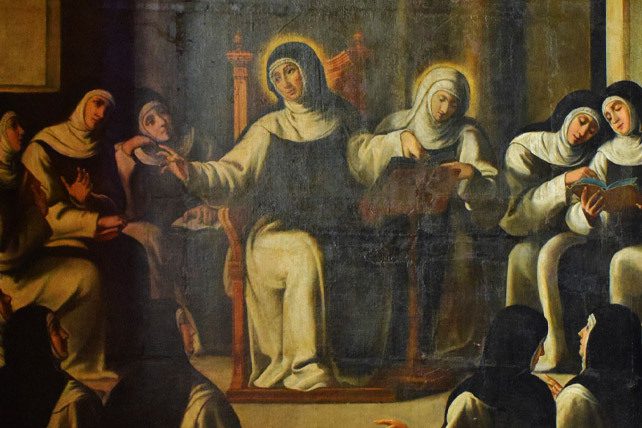Beth Allison Barr, author of “The Making of Biblical Womanhood: How the Subjugation of Women Became Gospel Truth,” is once again in a dispute with leaders from the Council on Biblical Manhood and Womanhood (CBMW). This time, the altercation concerns a passage from Barr’s book about a medieval Christian woman named Saint Paula.
“Y’all, I’m a kind person,” said Barr. “‘But I’m also a fighter. And I have hit my limit with @DennyBurk & @colinsmo. [Their] behavior toward me has been despicable. They failed trying to smear my orthodoxy; they failed trying [to] smear my church; so now they are trying to smear me as a mother. All because they are afraid of #MakingBiblicalWomanhood. Telling.”
Beth Allison Barr: ‘Enough Is Enough’
In “The Making of Biblical Womanhood,” Beth Allison Barr seeks to demonstrate that the concept of “biblical womanhood” is not inherent to the Bible, but “arose from a series of clearly definable historical moments,” according to a description on the back of the book.
On Wednesday, Feb. 2, CBMW executive director Colin Smothers tweeted several screenshots of a review of Barr’s book by the London Lyceum’s Jordan Steffaniak.
On my own trek through the book, this was when my jaw hit the floor. Does Barr really commend *child abandonment*?? Yes, yes she does. pic.twitter.com/jg8j621X95
— Colin Smothers (@colinsmo) February 2, 2022
Smothers commented on one screenshot, saying, “On my own trek through the book, this was when my jaw hit the floor. Does Barr really commend *child abandonment*?? Yes, yes she does.” CBMW president Denny Burk responded, “Me too. Couldn’t believe it.”
Smothers’ statement pertains to a chapter of Barr’s book titled, “Our Selective Medieval Memory” where Barr takes a paragraph to describe a woman named Saint Paula. Barr contrasts the perspective of Christian women in medieval times with a view of womanhood she encountered at a women’s retreat. The retreat’s speaker “had one message,” says Barr. “Women are divinely called to be stay-at-home moms dedicated to childrearing and keeping the home.”
Barr then explains that many medieval women believed their first calling was to follow God, not to pursue marriage and families. She goes on to provide examples of such women in the chapter. The section on Saint Paula reads as follows:
I wondered what the speaker would think of women like Saint Paula, who abandoned her children for the higher purpose of following God’s call on her life. Paula’s story tells of how she set sail for Jerusalem—after the death of her husband—on a pilgrimage, leaving three of her children alone, crying on the shore. Maybe the speaker would have claimed that Paula was not following biblical womanhood, as she did not exemplify Titus 2. But Paula seemed to believe she was practicing biblical womanhood, drawing strength from Jesus’s statement that “whoever loves son or daughter more than me is not worthy of me” (Matthew 10:37). Saint Jerome, her biographer, tells us that as the ship drew away from the shore, Paula “held her eyes to heaven . . . ignoring her children and putting her trust in God. . . . In that rejoicing, her courage coveted the love of her children as the greatest of its kind, yet she left them all for the love of God.” Paula founded a monastery in Bethlehem and worked alongside Jerome to translate the Bible from Hebrew and Greek into Latin. The Bible she helped translate became the Vulgate, the first major translation of the Bible into an everyday language outside of Greek and Hebrew. It became the most commonly used Bible throughout the medieval era.
Steffaniak, along with Smothers and Burk, takes this passage as Barr endorsing Saint Paula’s actions. He says, “Barr holds up Saint Paula as an exemplar….To think that this is even remotely near a positive example is extremely concerning. Quite honestly, it’s disturbing. So, to be frank: I don’t care if Paula helped translate a Bible. The ends never justify the means. We are not utilitarians.”

